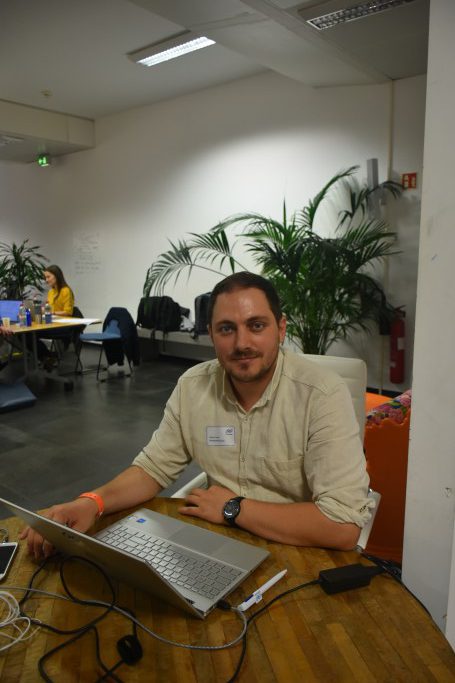In conversation with our young researchers: Adnan Imeri
17 December 2021

Blockchain in logistics and transportation.
Blockchain as a distributed-decentralised computing platform enables users to share, manage and monitor digitally signed assets through the smart contract.
How can blockchain technology be used to improve trust in logistics and transport processes?
Adnan Imeri completed his PhD in Computer Science from the University of Paris-Saclay (UEVE) and the University of Luxembourg, focusing on blockchain technology and its applicability in real-world use cases. His current research interest is mainly associated with blockchain technology, its implementation as well as its integration with the Internet of Things.
Blockchain to improve trust in logistics and transport processes
The transport of dangerous goods is very complicated to manage because of the risks to the human, environment, properties and living organisms. Currently, it suffers from a lack of efficiency, trust, and transparency.
In his thesis, Adnan Imeri proposed a new method for specifying the workflow aspects of the transport of dangerous goods by considering all stages of the process throughout its life cycle. This method aims to facilitate the specification of the transport of dangerous goods workflow process and management system that is fully based on existing regulatory frameworks ensuring compliance, trust, and transparency of all underlying processes i.e., before, during and after transport of dangerous goods.
At the Science Communication level, Adnan Imeri summarises his thesis for the general audience as “a novel method and tools to improve the specification of workflow in the process of transport and management of dangerous goods.”

“Most European Union member states consist of diverse societies, various ethnic groups, cultures and identities. It is challenging to maintain high social cohesion and trust in a multi-ethnic and multi-cultural society. Therefore, studying these topics is important and expected to provide some policy implications for local authorities.”
Adnan Imeri
All the interactions in the real world between stakeholders are transformed into interactions in the digital world, while the interactions with the environment are achieved using IoT devices. The researcher’s approach allows interactions between system components, e.g. digital twins, IoT devices, only if it is in line with the regulatory framework.
Using the blockchain technology, the design approach allows for improved trust and transparency in the transport of dangerous goods process from the perspective of collaborations between stakeholders.
The technological capabilities of smart contracts are also a foundation of his solution. As such, the researcher’s work contributes to improving the semantic of smart contracts to capture supply chain management specifications as well as dangerous goods specificity in terms of transportation.
The transportation and supply chain of goods is heavily influenced by digital technologies, as are the logistics companies that provide them, due to their critical nature. Not only must these services be correct, but end-to-end traceability of the transport process must be ensured. The influence of advanced technologies such as the Internet of Things (IoT) and blockchain is enabling a new level of transparency and real-time verification of the transport process.
A blockchain researcher
Adnan Imeri’s research journey started in 2015 when his interest in service compliance with the regulatory framework spiked. After that, he expanded his research activities in different areas, to find new ideas on distributed-decentralised technologies, which were the most prominent technologies at that time.
After completing his Bachelor in computer science at the University of Prishtina in Republic of Kosovo, followed by a Master of Science at the University of Geneva in Switzerland, Adnan joined the Luxembourg Institute of Science and Technology (LIST) in 2017.
Why Luxembourg as a research destination?
According to Adnan Imeri, Luxembourg is one of the most developed countries in terms of research. It allows new researchers to develop their research activities, thanks to many resources such as funding or access to research libraries, and a well-connected research environment.

“The surrounded research environment in Luxembourg is very supportive and allowed me to exploit different collaborations at national and international level.”
“It is an excellent research environment that offers the possibility of conducting large-scale research projects.”
Adnan Imeri
Read more about Adnan Imeri‘s research work.








